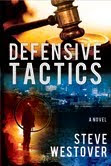
Stephen King is an amazing story teller. Even when he is telling stories about writing and the lessons he has learned. On Writing, is a funny, entertaining and insightful book about honing the craft of writing that every writer, or aspiring writer, should read.
The first lesson I learned from On Writing is this, Don't Overplan your writing. What does this mean, you ask? Let me explain.
Stephen King writes because he loves to, but he also writes because he is disciplined. He has a writing schedule he keeps, and when he's not writing, he's reading, or watching TV and movies, all which help to spur his imagination. One of his pet peeves, and mine, is watching a movie or reading a book that is predictable. Maybe we identify the killer in the first scene. Maybe it is so obvious what the hero is going to do, we can just put the book down or turn off the show because there is no use in finishing. Why is so much of our entertainment so predictable? Because the writers follow the same patterns. They plan what will happen, and then write to meet that plan. Unfortunately, readers and even TV watchers are often too smart for this.
Stephen King was once asked "How come your books are so unpredictable"? He answered, "Because when I write them, I don't know what's going to happen next. If I (as the writer) don't know what will happen next, how can the reader?"
Writing needs to be a natural progression. Scenes need to unfold and characters need to develop organically, just as they do in real life. Now, every writer's process is different, and that is good, but it is hard to argue with the success Stephen King has enjoyed.
Most often, he begins his writing with a question, or a situation and then lets the writing unfold from there. For example, he might ask the question, "What would happen if a famous writer was trapped with a psychotic fan?" From that, he wrote Misery. Or, "How would a man who was wrongly imprisoned, reclaim his life and find joy again?" The answer, is The Shawshank Redemption.
We often need a blueprint, to keep us on track, but we shouldn't overplan every aspect of our story, or characters. Things become too predictable that way, and what fun is reading a 300 page book that you've figured out by page 20?

























No comments:
Post a Comment